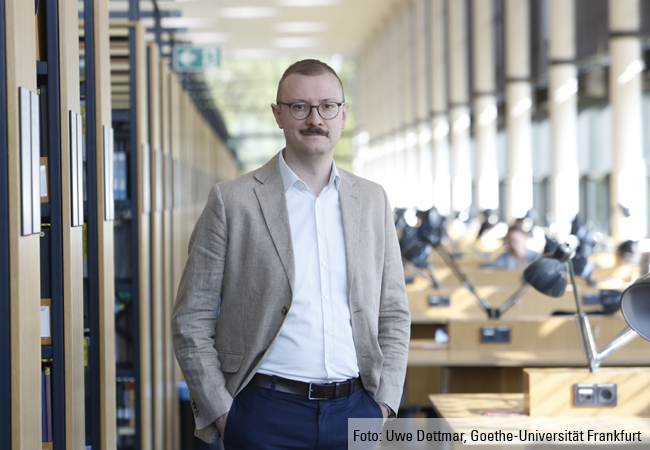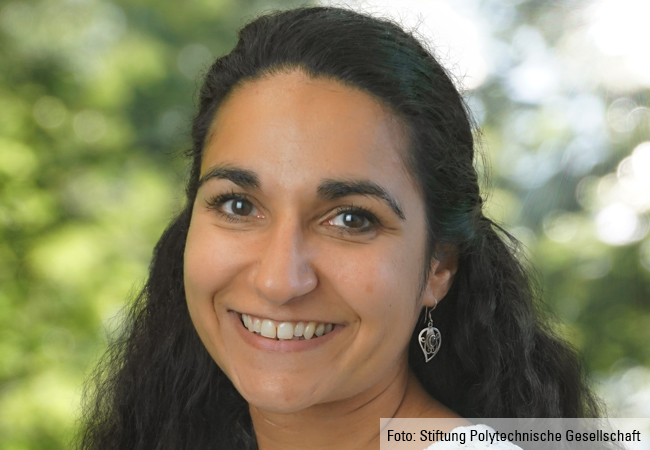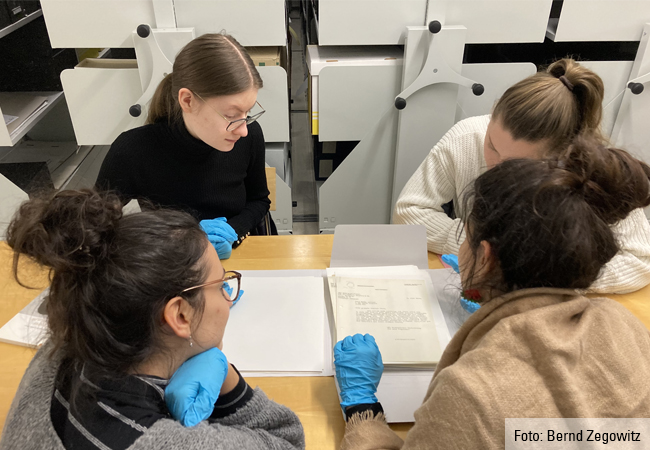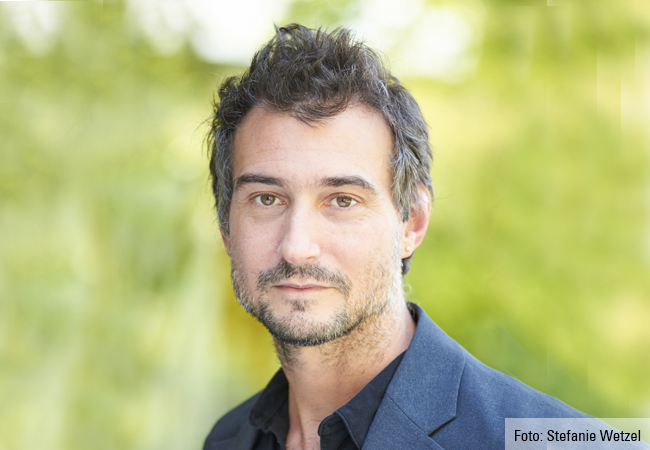Impressions of the German-Israeli spring school at Goethe University Frankfurt’s Institute of General and Comparative Literary Studies
The Institute of General and Comparative Literary Studies at Goethe University’s Faculty of Modern Languages held a German-Israeli spring school from April 15 to 17 on the topic of “Writing and Disaster.” The spring school grew out of the long-standing cooperative teaching by Prof. Ilit Ferber (Philosophy Department, Tel Aviv University), Prof. Judith Kasper and Dr. Caroline Sauter (Institute of General and Comparative Literary Studies, Goethe University Frankfurt). It was originally planned as an online seminar in the 2023-2024 winter semester, with a follow-up visit by Israeli students to Frankfurt in January.
However, this plan had to be abandoned following Hamas’ October 7 attack on Israel and the ensuing war in Gaza. Accordingly, the texts were read and discussed individually, but the desire to resume face-to-face meetings and continue the academic dialog continued to grow. To meet this demand, the three-day spring school was organized as a kind of quick replacement. The challenge then turned to finding a well-considered way of dealing with the new reality of terror, violence, and war (in the air, on the ground, in people’s minds and in discourses) that would fit into theoretical thought and academic work.
When Iranian drones attacked Israel in the night from April 13 to 14 and Israeli airspace was closed for civil aviation, it looked as though war was once again going to prevent the scheduled in-person event. But the airspace was reopened at dawn and, with the exception of three students who decided not to travel for family reasons, all of them made their way to Frankfurt.
The event began with a breakfast organized by the Frankfurt students, which was also attended by two colleagues from Paris, Dr. Katja Schubert (German Studies, Paris X Nanterre) and Prof. Isabelle Ullern (EHESS). Some participants already knew one another from previous seminars and were delighted to be meeting up again. Those attending for the first time quickly got into conversation with the guests from Israel, and it was amazing to see the impressive curiosity and openness displayed by students as they approached, talked to and listened to one another.
Reading Blanchot
The spring school focused on the book L’écriture du désastre (The Writing of the Disaster) by French philosopher and writer Maurice Blanchot. Published in 1980, in France the book is considered to be a milestone in thinking and writing after Auschwitz. The text is fragmented; the concepts Blanchot finds in Western philosophy are damaged; dichotomies collapse; and dialectics start stammering. The Writing of the Disaster is a difficult work that is only rarely read at universities. The text resists the creation of theses and summaries. Its density, which is also poetic (in some respects it is reminiscent of Paul Celan), demands a high level of philological attention. The hermeneutic process becomes slower, quieter, more reflective, and more questioning.
The central concept of “disaster” enabled the students, with theoretical support, to express something of the extreme shock over Hamas’ terror attack and Israel’s extremely violent reaction in Gaza. At the same time, the very concept Blanchot uses for an absolutely cosmic disaster – the stars (astres) no longer provide orientation in time and space – also helped them in viewing the specific disaster in a wider, existential and ontological context.
Not an ivory tower occupation
In an epoch of media acceleration and the associated narrowing of discourse, all participants (including the teaching staff) found precisely the linguistic and conceptual awkwardness of this text, its resistance, and even its specific barrière, to be especially productive. The book alienates concepts we commonly use to try to comprehend our social reality, destabilizing unquestioned defaults and putting judgments on hold, while questioning gains more depth. By working together in various formats (brief presentations; plenary readings, plenary discussions, group work followed up with presentations), participants’ thinking and speaking evolved in a manner that pushed forward more complex truths, both scientifically and on the basis of the common experience. The spring school resoundingly debunked the conception that theoretical and philological work is an ivory tower occupation. This style of working in the humanities – with English as the lingua franca, but always with translation assistance on hand – has proven to be an ethical best practice of bringing together into discussion people with varying levels of academic education (the group consisted of B.A., M.A. and doctoral students) and different linguistic and cultural backgrounds.
Illustrating the atmosphere at the event are the following quotes from the teaching evaluation: “I appreciated that the level of discussion was constituted rather by a mutual respect for various points of view on the text than by a desire for a common opinion or sovereignty of interpretation”; “The seminar completely changed my mind on the book and opened up new ways of thought for me”; “This seminar has allowed me to try a completely new working modus, to feel the exhaustion and at the same time the joy of being exhausted”; “The way of working and discussing I experienced in the seminar is an experience that will help me a lot.”
Mandy Gratz and Judith Kasper













